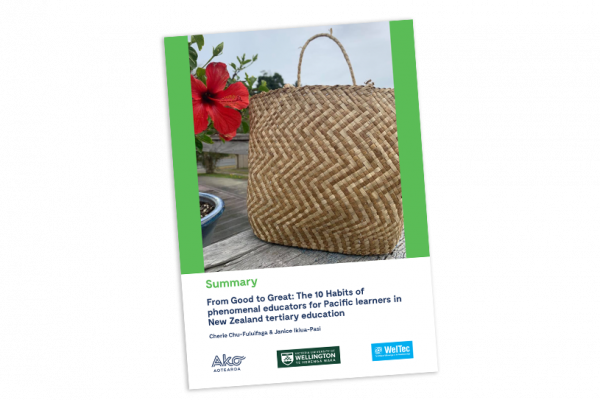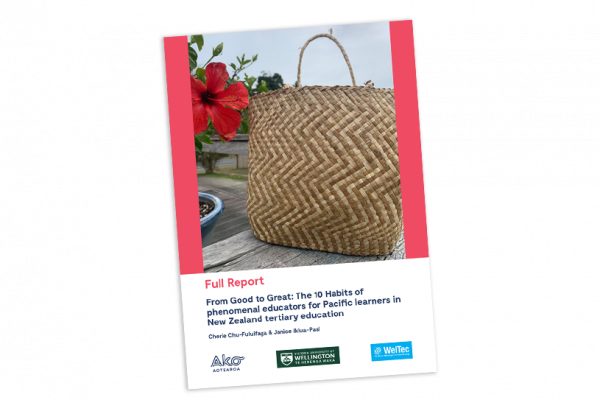Resource
From Good to Great: The 10 Habits of phenomenal educators for Pacific learners – The Kato Toolkit
Supporting learners,
Learner access and pathways,
Educational outcomes,
Pacific learner success,
Supporting staff,
Teaching strategies,
Strategic Leadership and Change
Foundation and Bridging Education,
Social and Behavioural Science
Published: 30 June 2021
The Kato Toolkit has been designed as a gift for tertiary educators to help them transform the way they embrace and celebrate Pacific cultures and learners in their classrooms and learning spaces.
This Kato can help educators develop:
- Knowledge about how to educate Pacific learners.
- Skills such as relationship building, understanding Pacific values such as respect, and effective cultural communication.
- Attitudes and behaviours that resonate with Pacific learners, such as respect for diversity and acceptance of others.
It can be used in a wide range of tertiary teaching and learning contexts.
Discover the attributes, skills and qualities of phenomenal educators that were identified by students when they were presented with the key question during Talanoa: “Who is a Phenomenal Educator for Pacific Learners and why?”
Co-funded by
Ako Aotearoa’s
National Project Fund
Partnered with
Victoria University of Wellington

